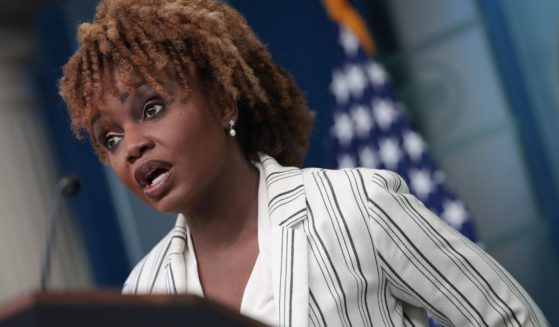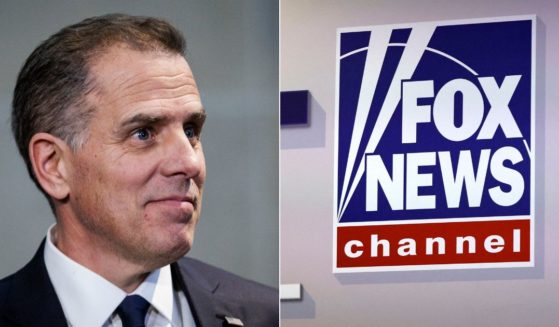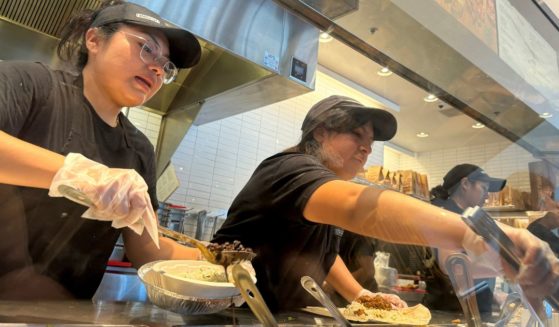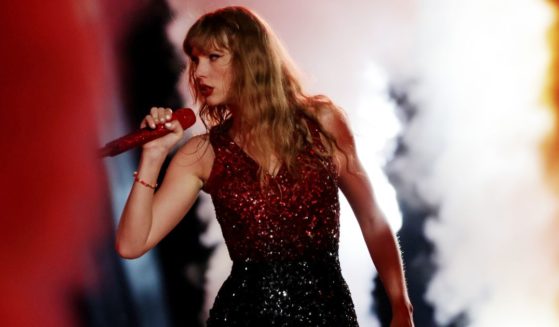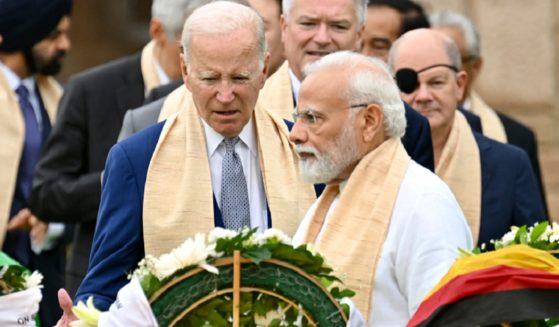Anheuser-Busch Competitor Reveals Changes Being Made in Stores Across US: Bud Light's Decline Is Now Locked In
The brokeness from wokeness apparently isn’t going to be a temporary thing for the folks who brew Bud Light, if a Thursday report on the state of the retail beer industry ends up being an accurate augury.
According to The Wall Street Journal, despite a strong-ish quarter for Anheuser-Busch InBev in spite of its main beer cratering in popularity, the brewing giant’s competitors see a long-term issue for what used to be the most popular beer in America, due to retailers locking in consumer patterns for the months to come.
First, though, the good news for the Europe-based multinational conglomerate: “Amid the high emotion in the U.S. over the Bud Light controversy, which arose in early April following a social-media collaboration with a transgender influencer, investors seem to have forgotten just how big and global the brand’s Belgian parent company really is. At its lows in late May, AB InBev’s stock was down around 20% from end-March. But it has since recovered some of that ground and the shares were up around 2% in early trading on Thursday.”
However, this has more to do with global trends than it does in America, where the brewing giant’s organic sales by beer volume dropped 14.1 percent year-over-year. That led to a global fall of 1.4 percent; much of Bud Light’s dismal performance was erased by strong performers in the Asia Pacific region — specifically in China, where the Harbin Beer brand was up 9.5 percent year-over-year.
And AB InBev’s competitors have reason to celebrate.
Take Constellation Brands, which sells Modelo Especial — the beer that took over the top spot from Bud Light after the Dylan Mulvaney controversy. Their shares are up 19 percent since the end of March. Molson Coors stock was up 35 percent since March, meanwhile, before shedding 4.7 percent after a report on sales growth was merely “in line with analyst estimates,” according to the Journal.
That still means that sales for the company that makes both Coors Light and Miller Lite — which are “the biggest beneficiary of Bud Light’s woes,” according to the Journal — were up 11.8 percent year-over-year in the second quarter.
More than that, Molson Coors executives believe Bud Light’s sales will be permanently impacted by the boycott the Mulvaney campaign touched off.
“Molson Coors Chief Executive Gavin Hattersley said on a conference call with analysts that retailers are already reallocating space to other brands during shelf resets that take place in the spring, with more resets to come in the fall,” the Journal reported.
“In bars and other on-premise channels, the company gained more than 12,000 tap handles in the quarter, he added. Molson Coors also said it is planning an additional $100 million of marketing spending in the second half of the year to keep that sales momentum.”
“Our job is to maintain those gains that we’ve got,” Hattersley told investors.
Fortune reported that Hattersley described the chaos Mulvaney’s social media campaign created as a “seismic shift” in the market and said the impact could mean Molson Coors’ before-tax income spikes upward by 23 to 26 percent this year.
“We didn’t plan on our largest competitor’s largest brand declining volume by nearly 30 percent in the quarter,” Hattersley noted. Now, both Coors Light and Miller Lite have 50 percent more market share than Bud Light, despite the fact AB InBev’s brew had more industry dollars than both beers combined.
It was a gift of epic proportions, I’ll give him that much. And while AB InBev may have reported a profit in the second quarter, retail changes that minimize Bud Light’s presence on store shelves could present an ongoing challenge to the Belgian multinational.
The folks at Molson Coors have every reason to believe that these changes are going to have some degree of permanence, too.
It’s not just the fact that Bud Light, formerly the best-selling beer in America, has shed roughly a quarter of its sales. Anecdotal evidence backs up the fact that consumers view the swill as a political statement — and they’re consuming accordingly.
At sporting events and concerts, the beer goes almost untouched. Bars went viral for videos where the Bud Light tap was removed and replaced with something else. At numerous Costco stores, Bud Light cases have been marked with the so-called “death star” — an asterisk on the price label that indicates a certain item isn’t going to be restocked anytime in the near future.
This is what one woke campaign did to a corporation. Yes, AB InBev still turned a profit — as well it should have, considering we’re looking at the first summer in recent memory where absolutely no one is pretending they need to sequester at home in front of their laptop with three masks on to keep from dying. Of course, beer sales are generally up — even if the company’s profits were saved by sales outside of the United States.
However, locking in a retail situation where Bud Light sees its shelf space reduced because it shed over a quarter of its sales due to a woketastic ad campaign provides a handy object lesson to competitors: Don’t do what AB InBev did. The company has hemmed and hawed since the Mulvaney situation broke, assuaging neither conservatives nor liberals with its clumsy tightrope act. In spite of turning a profit, the second quarter proved that Bud Light is officially undergoing a long-term brand rebuild — and one hopes, for the company’s sake, that doesn’t involve any more cameos by transgender “influencers.”
Truth and Accuracy
We are committed to truth and accuracy in all of our journalism. Read our editorial standards.



